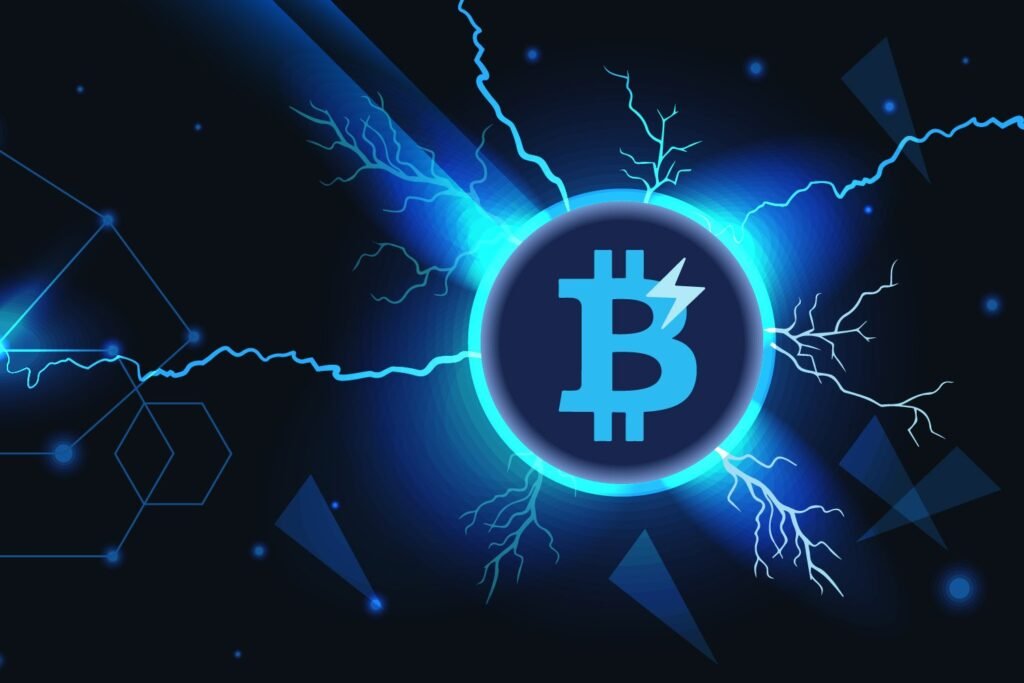
Hello Africa,
The Lightning Network (LN), a second-layer protocol operating on top of Bitcoin’s blockchain, has sparked significant interest in the world of digital finance. Known for facilitating fast, low-cost transactions, the LN is the much-needed solution to Bitcoin’s scalability problem. But it’s not just about Bitcoin. In the broader context, the LN has the potential to dramatically revolutionize financial services, particularly in regions where access to conventional banking infrastructure is limited or nonexistent, like Africa.
The Bitcoin Boom and the Emergence of the Lightning Network

Over the past decade, Bitcoin’s popularity has surged across Africa. As nations grapple with hyperinflation, economic instability, and exclusive banking practices, Bitcoin has emerged as a financial lifeline.
However, Bitcoin’s boom brought its own share of problems – slow transaction times and hefty fees. This second-layer solution promised an answer to these problems, but its implementation across Africa is no small task. The road to its successful rollout across the continent is strewn with challenges.
The Challenges

1. Technological Infrastructure:
The first and most significant challenge is the limited technological infrastructure. The Lightning Network’s operation requires stable internet access and reliable mobile devices, both of which are not universally available in Africa, particularly in remote and underprivileged areas.
2. Education and Awareness:
Second, the complexity of cryptocurrencies can be daunting for many people, even for those with formal education. For someone that owns a small business in Nigeria, Bitcoin, let alone the LN, is a confusing concept. This lack of understanding acts as a formidable barrier to the adoption of the LN.
3. Regulatory Hurdles:
Third, the uncertain legal status of cryptocurrencies in Africa is a considerable deterrent. Some countries have outright banned cryptocurrencies, while others only grudgingly tolerate them. This makes for a complex and uncertain environment for the Lightning Network to thrive.
4. Trust and Security Concerns:
The security of cryptocurrencies is a recurrent concern among potential users. The fear of hacking and fraud, coupled with the irreversible nature of blockchain transactions, often discourages individuals and businesses from embracing these technologies.
5. Liquidity Issues:
The LN operates using ‘channels’ that users need to open by locking up Bitcoin. This could be a problem in economies where capital is scarce and many people live on day-to-day earnings.
6. Volatility:
Lastly, the value of Bitcoin and most other cryptocurrencies fluctuates quite substantially. The unpredictability of Bitcoin’s value, the underlying currency of the LN, can be a deterrent to its adoption.
Overcoming Challenges: The Way Forward

Despite the challenges, several facilitative factors could catalyze the Lightning Network’s adoption in Africa.
1. Rising Popularity of Bitcoin:
Interest in Bitcoin is on the rise in Africa, and this growth could extend to the Lightning Network, particularly if it can offer more affordable and faster transactions.
2. The Demand for Inclusive Financial Services:
Many Africans lack access to affordable financial services, a gap that the LN could potentially fill. This could be a significant driver for adoption.
3. Support from Governments and Businesses:
If governments and businesses support and legitimize the LN, it could encourage its adoption. This would require extensive dialogue and advocacy to form regulatory frameworks that encourage innovation rather than stifle it.
4. Leveraging Mobile Connectivity:
Despite limited access to high-speed internet, mobile connectivity is relatively widespread in Africa. If the LN can tap into this, creating user-friendly mobile applications, it could significantly boost its adoption.
5. Bitcoin-Savvy Legal Support:
The involvement of legal professionals well-versed in the Bitcoin ecosystem can provide the necessary guidance and support to navigate the regulatory uncertainties and ensure that users are protected from potential legal issues.
6. Grassroots Education and Advocacy:
Improving awareness and understanding of the LN and cryptocurrencies is crucial for their acceptance. Several organizations across Africa are taking the lead in conducting seminars, webinars, and meetups to educate people about these technologies.
Potential Impact

If these challenges can be surmounted, the LN could bring a lot of benefits to the African continent:
1. Enable Micropayments:
LN could be used to make tiny payments, a concept that is currently unfeasible with traditional banking systems.
2. Improve Cross-border Payments:
LN could revolutionize remittances by enabling quicker and cheaper cross-border transactions, a significant benefit in Africa, where many countries have extensive diasporas.
3. Increase Financial Inclusion:
By providing an affordable and accessible financial platform, the LN could increase financial inclusivity, which is crucial in a continent where a significant portion of the population is unbanked.
4. Boosting Local Economies:
By facilitating business transactions, the LN could help boost local economies, leading to increased prosperity.
Conclusion
The road to implementing the Lightning Network in Africa is undoubtedly challenging. However, these challenges are not insurmountable, and the benefits that the Lightning Network can bring to Africa could be transformative. For millions of people in Africa, the Lightning Network’s potential goes beyond just technology – it represents financial freedom and inclusivity, a beacon of hope in the continent’s dynamic economic landscape. In our upcoming blog post, ‘The Lightning Network’s Role in Africa’s Fintech Revolution,’ we will delve deeper into the Lightning Network’s potential impact on Africa’s financial sector. Stay tuned!
SIGN UP FOR OUR WEEKLY NEWSLETTER
"*" indicates required fields
GET UPDATES ON OUR LATEST BLOG POSTS
Subscribe with your favorite RSS reader (eg, feedly) to get updates on our latest blog posts. Simply click the ‘RSS‘ button above and paste the url link in the reader to subscribe.


